The Ultimate Guide to Search and Rescue (SAR) Training
Are you and Search and Rescue (SAR) the right fit?
Searching for the lost and missing is a noble calling. Is it calling you?
The hours are long, the training is arduous and the discoveries - while rewarding - can stay with you for a long time, for better or worse.
Plus, most SAR is conducted by volunteers without reimbursement and requires taking time off from a paying job or other commitment.
In short, search and rescue (SAR) is not for everyone.
The three (3) things you must know before volunteering to serve in Search and Rescue (SAR):
- What knowledge and skills are required for SAR?
- How much time and money does SAR cost?
- How and where do I get involved in SAR?
Some come to SAR for the attention, some come for the addition to their resume, some come because they like being outside. However people that are driven by those external factors seldom last. Nor should they, frankly.
But ... if you're motivated by the opportunity to help people on their worst day, to do things and to go places that most people are unwilling go and do, then SAR may be right for you.
Let's look at some options to move forward ...
Like this Free content and want to express thanks? Click below.
Your support is appreciated.
Online Search and Rescue (SAR) Training
I offer two (2) levels of engagement for those wanting to advance their Search and Rescue knowledge:
- Free Search and Rescue (SAR) Training via email
- Search and Rescue (SAR) Responder Membership for Individuals and Teams
If you're not sure if you're ready to commit to search and rescue yet, this introductory course is delivered via email over 2 weeks.
- The emails are comprised of the same introductory lessons available for free in the full SAR Fundamentals course (opens in new tab).
- Click below to learn more and to enroll at no cost or obligation.
- You can unsubscribe with 1-click at any time.
- Enter your name and email below to get started or click HERE to learn more about this free, email-only introductory course (opens in new tab).
NOTE: New subscribers only. If you don't receive a confirmation email within a hour, you may already be subscribed. Otherwise, check your junk folder!
For those of you already primed to build your search and rescue knowledge, please keep reading ...
Designed for teams and individuals, this exclusive opportunity provides a solid foundation for on-boarding new members and for providing refresher training to existing members.
The first of its kind, TEAM Solutions now offers Leadership Memberships specifically designed and recommended for serious Search & Rescue Responders.
By combining ALL of the search & rescue courses, downloads and related resources into one choice, responders (individuals AND teams) are now able to enroll one (1) time for the foundation training they need to be successful.
- Available in convenient monthly and annual plans, virtually everything a SAR responder needs to know is available in one place.
- Exclusively for enrolled students of TEAM Solutions, active SAR Responder members have unlimited access to the following topics:
Search & Rescue Fundamentals
Managing a Crime Scene
Medical response including Bloodborne Pathogens
Team Communications
Responding to a Disaster & Assessing Damage
Responding to a Flood
Handling & Training a SAR K9
SAR Navigation
Managing a Search Mission
Working with an Emergency Operations Center
Responder Safety
Other current & future topics ...
Open the toggle below to browse the growing list of SAR-specific courses (all included for active members):
Volunteer Engagement
Identify and understand the challenges involved in achieving optimal volunteer engagement. Explore the techniques and methods to improve.
United States National Grid (USNG) Mapping
Learn and practice the national standard for ground-based navigation, the US National Grid or USNG. Navigate better immediately.
Types of Searches for the Lost or Missing
Learn the different types of searches that are used when someone is lost or missing and evaluate when and how to apply them properly.
Types of Interior Spaces for SAR
Learn the different types of interiors spaces that Search & Rescue (SAR) responders encounter and how they should be properly evaluated.
Transfer of Command
Examine the important process involved in the seamless transfer of command during or after an event.
Tracking and Clue Awareness
Increase your confidence and skill with tracking and clue awareness while searching for the lost or missing.
The TEAM Solutions Wheel of Engagement™
The TEAM Solutions Wheel of Engagement™ details the 13 steps to earn engagement + performance while debunking the Purpose + Passion bromide.
Team Engagement
Improve engagement and support within any team of any size in order to increase performance and satisfaction.
Succession Planning for Leaders
Collect and learn the strategies to build and enhance succession plans to promote your organization's resilience after your departure.
Span of Control
Understand the importance of applying the correct span of control in order to optimize results.
Search Techniques – Intermediate
Learn the specific techniques and strategies used by professional responders to increase results and reduce misses. Intermediate course.
Search Techniques – Advanced
Learn the specific techniques and strategies used by professional responders to increase results and reduce misses. Advanced course.
Search Strategy for the Lost and Missing
Explore and improve your search & rescue outcomes by improving your search strategy for the lost and missing.
Search and Rescue K9’s – Introduction
Learn and explore the basics of the rewarding field of Search and Rescue K9 (K9 SAR) and evaluate your dog's suitability for SAR.
Search and Rescue (SAR) Intermediate
Search and Rescue (SAR) Online Training provides comprehensive knowledge and skill to support your SAR career. Intermediate Course.
Search and Rescue (SAR) Fundamentals
Search and Rescue (SAR) Online Training provides comprehensive knowledge and skill to support your SAR career. Fundamental Course.
Response Sequence Meetings
Explore and understand the useful meetings used to maintain progress in a crisis response plan.
Responder Risk Management and L.C.E.S.
Learn the criticality of responder risk management including the L.C.E.S. tactic. Start reducing responder operational risk immediately.
Resource Types and Kinds
Learn, understand and apply the important differences in resource types and kinds.
Resource Tracking
Identify and evaluate the different strategies and methods for tracking event resources.
Notes about your Leadership Mastery Membership:
Team Enrollment
In another first for our industry, I'm pleased to offer a Team Enrollment opportunity for teams recognizing the value in consistently and efficiently on-boarding new members and refreshing existing members.
Available for groups of 5 or more along with a sizable discount.
NOTE: 2 options exist to create a team membership.
- Option 1 - When signing up as a team, all team members are paid for by one person, the Team Leader. The Team Leader does not have to also be a member so this option is beneficial for a team sponsored by an agency, paid from a grant, or by a team who pays for everyone's enrollment and recoups the cost from each member through member dues, etc. If or when the Team Leaders stops paying, all members lose access to their content.
- Option 2 - Each member enrolls individually at the individual rate. When all team members are enrolled, a team representative contacts us and we will manually link each member together as a team. As long as each individual maintains an active member status, they will maintain all-access to their content.
Benefits to your team of enrolling in these courses include:
For teams of 5 or more members:
- Click the "Team Enrollment" button above
- Enter your team name (you can change this at any time)
- Select the number of members you want on your team (reserved spots for members are called 'seats')
- Select and pay for your subscription preference
- Enter your member's name and email to invite them to your new online team
- Enjoy your team's new and better way to learn!
Advanced Team Management
For team training managers needing a more granular view of their member's progress, additional customization is available.
Example features visible to team managers:
These robust features are included with your team membership and are customized on request.
Keep scrolling to learn more about scholarship opportunities for teams.
Course Catalog
Browse all courses in all modules here:
Know Before You Enroll and FAQs
Did you know that training industry experts believe that nearly 85% of all on-boarding, foundation, and refresher training will take place online? (via E-Learn-Info Industry Report)
Read more about the advantages of online education by clicking each link below (articles open in a new tab):
Why e-Learning?
How Much Does It Cost To Be A Search & Rescue Volunteer?
Is This Training Certified and Accepted By __________?
Yes.
Unless it's not ... just like every certifier mentioned herein. Read on for an explanation.
The chief benefits of any credible SAR qualification are to demonstrate to the local authorities (who are responsible for SAR callouts) that the responder is qualified to perform the task of finding lost people AND therefore they are less likely to embarrass the agency in the process.
- TEAM Solutions courses deliver a blend of crawling (awareness), walking (knowledge), and running (application of skill).
- TEAM Solutions courses are widely accepted and backed by our experience and reputation in the industry delivered online since 2011.
Here is a snapshot of the certification landscape:
State Level SAR
Some states have statewide wilderness SAR standards (Oregon, New Mexico, California come to mind) that must be met in order to be a part of an official state call-out (which includes those local incidents that eventually seek state support, reimbursement, etc.) I'm not aware if any of those states offer reciprocity across state lines so a New Mexico responder may have to recertify if they move to California and vice versa.
Federal Level SAR
At the federal level, it's another mixed bag. FEMA sets standards for federal responders on federal urban-SAR events (disasters such as hurricanes, wildfires, etc.) and many states follow their lead when establishing standards for urban response. Other federal agencies may have different expectations to get involved in a SAR incident, i.e. Forest Service, Coast Guard, etc.
Urban training is a little more organized, but again, not uniformly applied at the local level. FEMA (US and some others) and INSARAG both offer performance standards, but typically you'd have to be on a government sponsored disaster team to receive the training and seek their disaster certification.
An exception would be FEMA's CERT (Community Emergency Response Team training) which is designed to help train neighbors how to help neighbors after a disaster.
Keep reading for more information about the National Urban Search and Rescue Response System.
Local Level SAR
At the local level, there's usually not a consistent qualification standard.
In the United States, NASAR offers a wilderness field certification (SAR Tech III-I) which some teams adopt to certify their members. Because NASAR's focus is mainly wilderness certification, however, that certification is seldom useful just by itself for a team to become SAR proficient. And even though they are likely the most well-known wilderness SAR standard, they're not alone nor are they available everywhere ... on the US west coast, for example, NASAR certifications are scarce.
For context, when I was involved with local, wilderness SAR, I had to meet a wide variety of performance expectations, only some of which were addressed in the NASAR curriculum. Because outside certifications usually add more credibility, a few of us went on and certified as SAR Tech IIs with NASAR too. It helped having outside certs on my resume as I climbed the ranks of local, state and federal SAR but the local sheriff or police detective that called us out never cared.
Summary of SAR Standards
Local counties, for the most part, can require or not require whatever standards they want in order to deploy local SAR responders.
Most teams develop and enforce their own standards that reflect their own mission, operating environment, etc. As part of their 'self-certification', it's common that their Mission Ready requirements may ALSO include or at least mimic certification requirements from NASAR, American Heart, Mountain Rescue, and increasingly TEAM Solutions.
The SAR courses available in the SAR Course Catalog cover the majority of material needed for a new SAR responder, regardless of where they go with their certifications.
Bottom Line - SAR Qualifications
The best way to find out if an agency will accept an outside certification - regardless whose certification it is - is to simply ask them. If or when they have follow-up questions, send them to this page and/or have them contact me.
Again, agency's want trained, certified and reliable searchers on their missions. And my online SAR courses are laser-focused to do just that.
- Someone who completes all of my SAR courses (with a few exceptions still on the development roadmap) can immediately start applying their knowledge and skill in the field on their way to being field certified.
Contact me below if you have further questions and I'll try my best to help you.
How Do I Find & Join a SAR Team?
Depending on your operating environment, I recommend researching which agency or agencies are statutorily responsible for directing or approving SAR response where you're located.
- Start by checking with your local Sheriff's Department, Fire Department, and Emergency Management Agency.
They each are a good place to start asking what expectations or requirements they have in order to approve of you (or your organization) as an official response partner.
Ask them who they would call if someone was missing.
- If a team is not on the 'approved call out' list of the agency responsible for SAR, they will be home watching a search unfold on the television just like everybody else.
You want to align with a team that has a useful reputation among other responders!
Those inquiries should give you an idea what the opportunities are.
Also, some other volunteer community service groups may offer limited SAR services without the demands of a SAR team. Groups such as:
- Off-road 4x4 groups
- Citizen Police and Fire Auxiliary Groups
- Community Emergency Response Teams (CERT)
Like this Free content and want to express thanks? Click below.
Your support is appreciated.
Urban Search & Rescue (USAR)?
A subset of search and rescue involves a specialized response to natural and manmade disasters (hurricanes, structural collapse, etc.) called Urban SAR.
In the United States, there are nearly 30 USAR teams sponsored by FEMA, the Federal Emergency Management Agency.
At the state level, most states (and some large metro areas) also sponsor USAR teams, which are part of the same system but organized under the membership-based State Urban Search And Rescue Alliance.
USAR teams are called task forces because they are comprised of multiple disciplines, including the following specialties:
Medical
Canine
Logistics
Rescue
Command/Leadership
Planning
HazMat
Support Personnel
- A Type 1 USAR Task Force is comprised of 72 responders and is equipped to operate autonomously for 14 days.
- A Type 3 USAR Task Force is comprised of approximately 23 responders, also drawn from the above disciplines.
I'm a Volunteer, Why Isn't This Free?
"Free is not really free"
Even if we don't open our wallets, somebody somewhere has to put in the effort to prepare and deliver a product or service to us.
The training presented here has been created and assembled by professional TEAM Solutions subject-matter experts. In addition to extensive experience instructing adults, our experiences and insights also reflect over 20 years of responding to local, state and federal Search & Rescue incidents.
An investment was made to bring this material to you. To enjoy that benefit, an investment is needed from you.
We don't expect an amateur to reliably perform Search & Rescue operations so how would amateur SAR training produce a different result?
One of my first SAR trainers told our group that because of the work we were training to do, we were not SAR volunteers but "Unpaid Professionals" instead. After all these years, I believe that now more than ever.
Therefore, the courses here are designed for the Unpaid Professional mindset and not the Volunteer mindset.
The Unpaid Professional mindset often focuses on value, efficiency of time, and dedication to investing in their future.
- They're driven mostly by logic and are usually a great fit for the transformation I provide.
- The Volunteer mindset often focuses on free, questionable standards, and entitlements.
- They're driven mostly by emotion and are not usually a good fit for the transformation I provide.
TEAM Solutions training is professionally developed and delivers measurable value to the Unpaid Professional dedicated to improving their knowledge and skill.
Alternative online providers of quality SAR skill-based training:
- National Association for Search & Rescue (NASAR) offers some online SAR courses (NOT free either) that focus on wilderness field skills, with a notable list of prerequisites. Certificates also available.
- Texas Engineering Extension Service (TEEX) offers some online SAR courses (NOT free either) that focus on field skills, with a notable list of prerequisites. Certificates also available.
- Mountain Rescue Association (MRA) offers a small handful of online courses limited to mountain rescue topics. Certificates are available.
However, if price is your sole criteria on whether or not to invest in a SAR course, I'm afraid there aren't many options.
Are any of these statements "true"?
- "I don't need proof that I completed the training"
- "I don't need a qualified and credentialed instructor"
- "I'm not committed enough to invest any money, but I'm interested enough to invest some time"
If so, then you can do what many volunteers do: fritter your day away searching for something that 'sounds right' (like I did when I started).
Below are some links to get you started:
Though not directly Search & Rescue related, the Federal Emergency Management Administration (FEMA) offers an extensive collection of free, online emergency management-related courses.
A word to the wise ... it is tantalizing to have so many online choices that are delivered at no cost to you. If you go that route, be sure to start with a desired outcome in mind to avoid wasting time reviewing material that may not add value to you actually becoming operational as a SAR team member.
Now, if you have an Unpaid Professional mindset and want to apply for a scholarship, refer to the "Group Scholarship Application" section of this guide.
Like this Free content and want to express thanks? Click below.
Your support is appreciated.
How Do I Use My Dog (or Horse, etc.) for SAR?
Hvaing a dog that needs a job is one of the main reasons people start exploring Search & Rescue. In fact, that's exactly how I started back in the late 1990's.
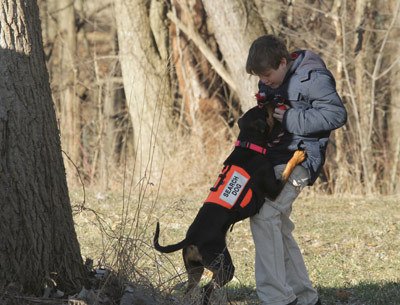
However, before making an investment in time and effort, there are two important realities you should come to grips with first.
SAR K9 Reality #1 -"The vast majority of dogs that are evaluated for search & rescue work are not suitable."
In the SAR K9 Intro course, I share details on K9 characteristics, evaluation criteria, etc.
Generally, pups should be at least 10-12 months old before officially screening them for search work. Besides having the opportunity to mature, by then, they should have also had their hips and eyes evaluated for genetic issues by a qualified veterinarian.
Prospective search dogs should be evaluated by an experienced working-dog evaluator who will look for strengths and weaknesses in the dog's genetic nerve strength, drives, etc. Evaluating a dog is an exhaustive but extremely critical process. Forms and guidelines are included for those enrolled in the SAR K9 Intro course.
If the dog doesn't have their paw up asking to do the work, it's not fair to try and make them!
Even when passing an initial screening, the time it takes for a dog to be deemed 'mission ready' can range from 6 monthes to 2 years. Those extraordinary dogs that become 'mission ready' meet three essential standards:
- They're TRAINED - backed by comprehensive training records
- They're CERTIFIED - by a reputable, outside evaluator
- They're RELIABLE - they perform consistly regardless of conditions
If you have a pup you want to start in SAR, the SAR K9 Intro course alone will be one of the best investments you can make.
For young pups, here are some simple DIY exercises to help prepare them for what could be an incredible journey as a SAR dog.
- Play fetch with their favorite toy.
- Play hide-and-seek where they get a fun reward after finding you.
- Thow their favorite toy in an empty bathtub - the drive to overcome the unknown depth, slippery surface, etc. and go after their toy is a favorable sign.
- Expose them - safely - to many different environments so they have an inventory of experiences to draw upon.
- Teach them basic obedience (recall, stay, sit, etc.)
Even if your pup doesn't succeed as a working dog, these exercises are a great investiment in your relationship with your dog as a pet.
SAR K9 Reality #2 - "Dog Handlers must be proficient searchers before becoming a dog handler."
- A dog handler that is not a skilled searcher has very little value on a search when they are not working their dog.
- A dog handler that is also a skilled searcher has a great deal of value on a search when they are not working their dog.
The journey to become a skilled searcher - for dog handlers and non-dog handlers - starts with the virtual-first education provided in the Leadership Mastery Program.
How Can I Become a Certified SAR Instructor?
For those that understand the importance of a certified education, it's natural to also understand the importance of a certified SAR instructor.
Competent Instruction involves five (5) components:
- Subject Matter Knowledge/Expertise
- Classroom and Student Management Skills
- Instructor Ability
- Humility
- Professional Curriculum
[Learn more about enhancing your instructor skills HERE.]
Depending on the course, the credentials required for instructors varies widely.
Many of the available wilderness field skill certifications, like NASAR's SAR Tech II, only require that their certified evaluators sign off on the skill ... there's no requirement who teaches the skill.
That allows NASAR to sell the certification books while the onus to learn the skill prior to being evaluated is on the student.
When I evaluated NASAR certifications for my local SAR team, our team also trained the member prior to their exam, even though there was no specific instructional certification to do so.
NASAR offers other field-based courses too. They don't offer information about their instructional requirements, only that you must contact their executive director for information.
When I was involved with the NASAR curriculum, my experience was that most 'qualified' instructors were not even close to meeting the 5 requirements listed above. After all, when people are forced to attend your course, what incentive do they have to offer to exemplary instruction?
If the course is homemade and only taught within a specific SAR team, then that SAR team defines what instructor credentials are required.
For national level courses, like FEMA courses that also involve a certification at the end, a much more stringent process is in place.
When I instructed SAR courses for FEMA, like Technical Search Specialist, Canine Search Specialist and Wide Area Search, I had to be certified by FEMA, which can be an exhausting process.
My FEMA Technical Search Instructor application, for example, consisted of:
- Proof of my training experience (actual certificates had to be submitted)
- Signed statements verifying my 'shadowing' other certified instructors
- A comprehensive resume of my SAR experience, again, with written documentation
- Letters of recommendation
- Certificate from an advanced instructor training course
- Other background documents
For me to advance to a Lead Instructor status, I had to demonstrate even more mastery of the subject.
The process can be demanding. So much so that at last check, I am the only person on the planet to ever be simultaneously certified to teach the above 3 federal SAR courses!
So in summary, being certified to teach SAR requires mastery of subject, instructional ability, and conforming to the expectations of the course you'll be delivering.
Paid Jobs for Search and Rescue?
Paid search and rescue jobs are less common than volunteer opportunities, but they definitely exist. Here are some good places to look:
- Government agencies: The Coast Guard, Forest Service, National Park Service, and some Fish and Wildlife departments all have paid positions that involve search and rescue as part of the duties
- Law enforcement: Search and rescue might be part of the responsibilities for some sheriff's departments, Border Patrol, and state troopers
- Military: Pararescue jumpers (PJs) in the Air Force and Coast Guard rescue swimmers are specifically trained for search and rescue missions.
Here's a caveat: Even in these paid positions, search and rescue might not be your primary function. It might be a duty you perform alongside other responsibilities.
Another option to consider is getting an Emergency Medical Technician (EMT) certification. While not directly search and rescue, EMTs can be called upon to assist search and rescue teams in providing medical care to those found.
My route started with local volunteer SAR prior to joining a state team who also has a federal mission.
State and federal missions were paid jobs but the vast majority of the training - which was a massive amount of time and effort - was not. So, still considered volunteer service.
I also started instructing early on and that led into a decent, paid career teaching other responders. So, still SAR but indirectly. And it required lots of experience, time-in-service, and was hyper competitive to get those teaching gigs early on.
International Search and Rescue?
Finding the lost and missing knows no boundaries ... however there are differences in some of the policies on how SAR is handled depending on where you're located.
Outside of the United States the International Search & Rescue Advisory Group (INSARAG) advises on those standards and methods.
"INSARAG is a global network of more than 90 countries and organisations under the United Nations umbrella. INSARAG deals with urban search and rescue (USAR) related issues, aiming to establish minimum international standards for USAR teams and methodology for international coordination in earthquake response ..."
In-Person Search and Rescue Training?
After nearly 20 years of responding and delivering search and rescue training in the field, my principal support of SAR is now on helping teams build stronger foundations via online training.
In addition, I provide many other opportunities to advance your crisis leadership, such as:
- Learn more about my Leadership Coaching opportunities by clicking HERE. (opens in new tab)
- Learn more about my Exercise Facilitation opportunities by clicking HERE. (opens in new tab)
For SAR-specific training that's delivered in-person, I recommend:
- National Association for Search & Rescue (NASAR) for wilderness skills
- Texas Engineering Extension Service (TEEX) for disaster skills
Once you join a SAR team, assuming that is your goal, that team may have additional training requirements as well.
Group Scholarship Application
It's never been easier or more economical to provide relevant training to volunteer groups of 10 or more. The one-of-a-kind membership costs less per-member per month than a large pizza and a drink.
In special instances, I provide a limited number of scholarships to groups - particularly non-profit groups - that are committed to improving the state of leadership.
- Learn more about applying for a Group Scholarship by clicking HERE. (opens in new tab)
SAR Gear
Below are some recommended items for you to consider while building out your SAR Gear Pack.
Note: if you make a purchase through any of the following links, I am eligible to receive a small commission. This does NOT increase your cost, it simply helps me offset the cost of maintaining this free page and my other free content.
SAR Supplies
FEMA Search Stickers & Structural Assessment Stickers
Required for use in a disaster by Presidential Directive, these are the official stickers used by the nation's local, state and federal Urban Search and Rescue (US&R) teams.
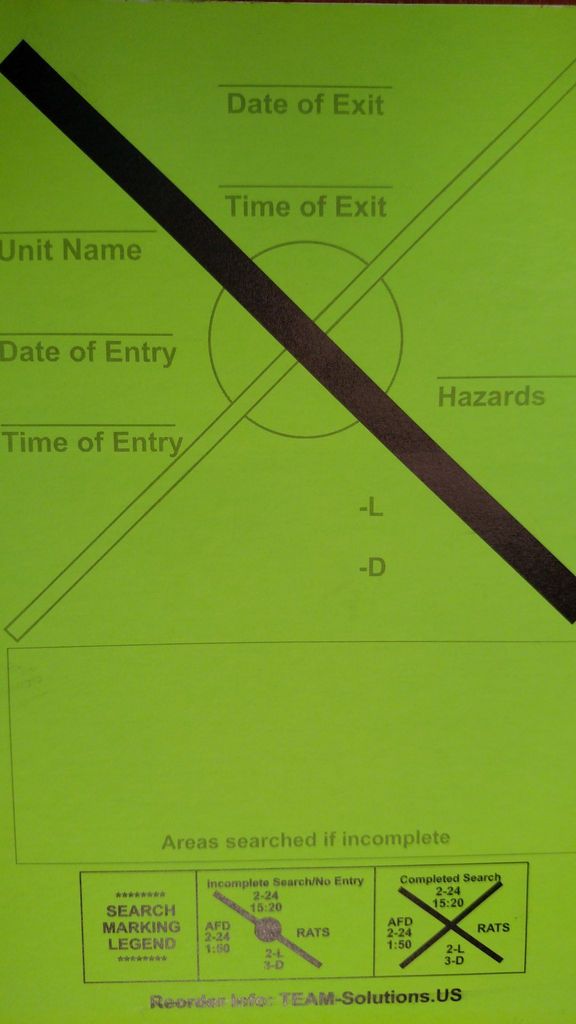
Fluorescent GREEN
Only limited quantities are in stock so order early, particularly during hurricane season.
Browse all responder supplies and equipment here:
Books by Mike McKenna
Click the image to learn more about my best-selling books:
Search and Rescue Downloads, Job Aids & Cheat Sheets
Job aids that I've used and shared with my SAR students through the years to simplify your response so you can focus on the mission.
Free Search and Rescue (SAR) Pocket Card
Free, downloadable reference card with the markings, symbols and tactics used by FEMA Urban Search & Rescue responders and anyone responding to a disaster environment. Learn more here or download below.
Free Preliminary Damage Assessment (PDA) Pocket Card
Free, downloadable reference card with the strategies and checklists to inspect and document markings, symbols and tactics used by FEMA Urban Search & Rescue responders and anyone responding to a disaster environment. Learn more here or download below.
Showing all 4 results
-
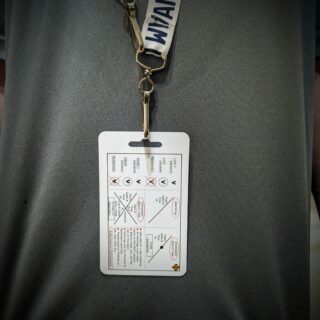
Search & Rescue Pocket Card – hard copy
Select options This product has multiple variants. The options may be chosen on the product page -
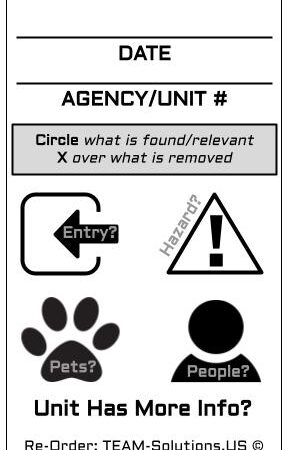
TEAM Solutions Flood Search Sticker ©
Select options This product has multiple variants. The options may be chosen on the product page -
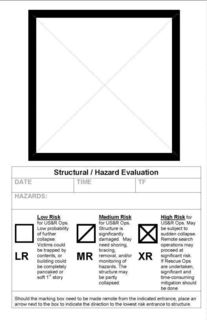
FEMA Structural Hazard Assessment Sticker
Select options This product has multiple variants. The options may be chosen on the product page -
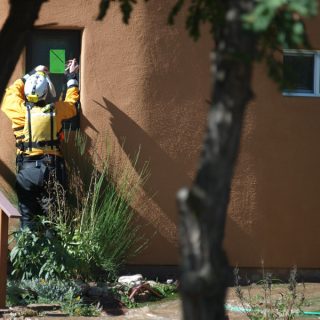
FEMA Search Marking Sticker
Select options This product has multiple variants. The options may be chosen on the product page
Other Search and Rescue Downloads
-
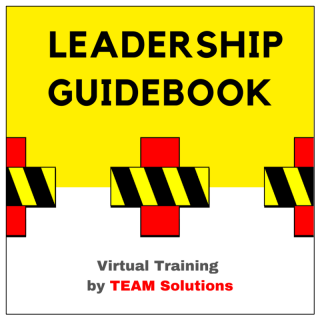
Guidebook: Job Hazard Analysis (JHA)
$24.99 Add to cart -
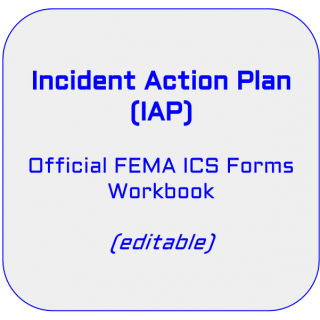
Incident Action Plan (IAP) ICS Forms Workbook
$0.00 Add to cart -
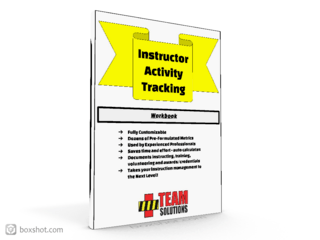
Instructor Activity Tracking Workbook
$19.00 Add to cart -
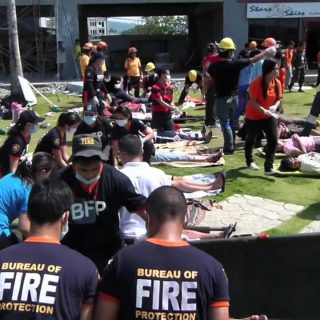
Mass Casualty Disaster Planning Medical Scenarios
$0.00 Add to cart -
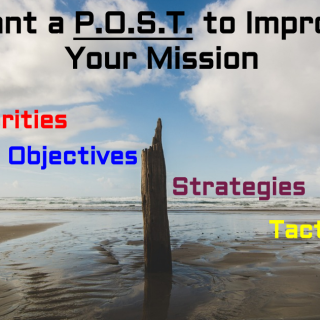
P.O.S.T. Pre-Mission Planning Worksheet
$0.00 Add to cart -

Preliminary Damage Assessment Pocket Card v1.1
$0.00 Download Free -
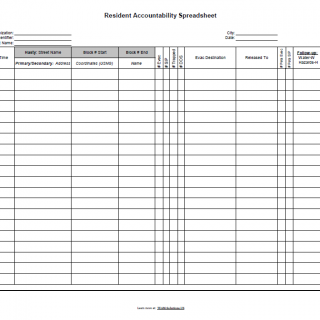
Resident Accountability Form and Instructions
$0.00 Add to cart -
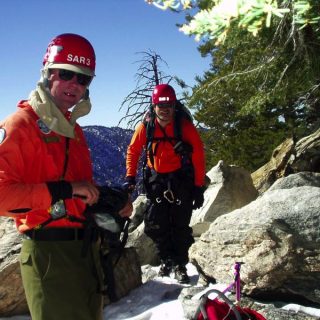
Search & Rescue (SAR) Responder Membership for INDIVIDUALS
From: $19.00 / month Select options This product has multiple variants. The options may be chosen on the product page -
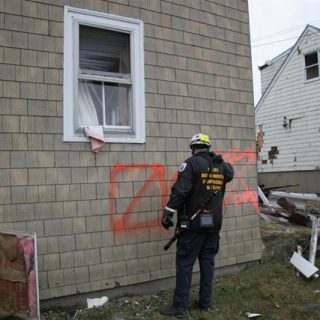
Search & Rescue Pocket Card v1.1
$0.00 Download Free -
 Sale!
Sale!
Guidebook Bundle – Communication Skills
Original price was: $149.00.$99.00Current price is: $99.00. Add to cart -

Guidebook: Communication Essentials
$24.99 Add to cart -

Guidebook: Emotional Intelligence
$24.99 Add to cart
Like this Free content and want to express thanks? Click below.
Your support is appreciated.
Search and Rescue Articles and Insights via Blog
Search and Rescue Glossary
Click below to access some of the most common terms and phrases used in Search and Rescue (opens in new tab):
Just Curious ...
Still curious but not ready to make a commitment? Want to stay in touch without any pressure to take the next step?
Add your name and email below to receive a free, no-commitment, every-other-week, Responder email subscription with quick tips, techniques and resources for responders of any experience level.
Like this Free content and want to express thanks? Click below.
Your support is appreciated.








